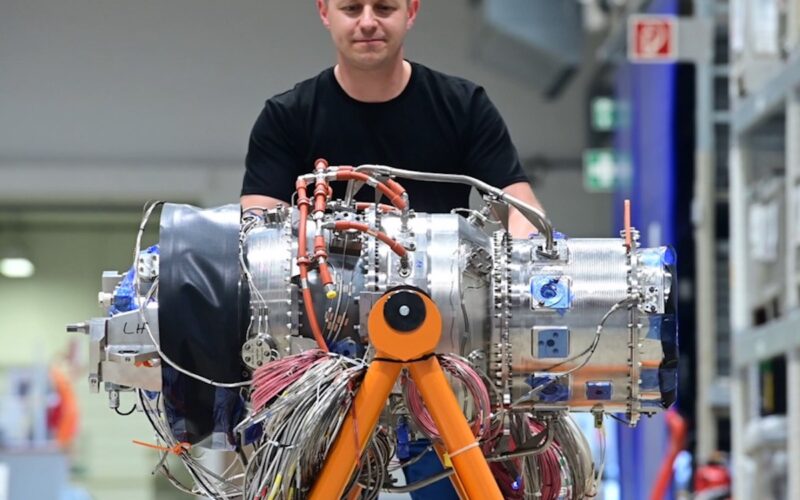Just as the Paris Air Show prepares for its grand opening, Rolls-Royce has announced that it has been working, and is now ready to begin testing, on a small new gas turbine specifically designed for the emerging hybrid-electric segment of the market.
The newly developed system combines a turbogenerator with an electric powertrain, and Rolls-Royce aims to market it for a whole range of low emissions applications. The British engine-maker has declared an ambition to become a leader in the development of propulsion – broadly, low-to-no-emissions propulsion systems for Advanced Air Mobility – encompassing urban and inter-city air mobility (for up to 19 passengers), with both eVTOL and eSTOL capabilities.
Rolls-Royce expects that with this program, which complements other projects that the engine-maker is pursuing in the electric aviation space, it will facilitate and accelerate the transition to lower carbon propulsion systems.
The new turbogenerator will make it possible to extend the range of electrically-powered aircraft with a scalable onboard source of power of between 500kW and 1200kW, which can be used to either recharge the aircraft batteries or to power electric motors directly.
Although tests are set to be conducted using SAF, the system is being conceived with the idea that in the future it can also be adapted to run on hydrogen.
A comprehensive testing program is already planned to start in the summer of 2023 at the Rolls-Royce Power Gearbox facility in Dahlewitz, near Berlin, with the project being partly funded by the German government.
This announcement arrives days after Italian aircraft manufacturer Tecnam, which is a partner of Rolls-Royce and Norwegian airline Widerøe in the battery-electric P-Volt aircraft program, confirmed it is suspending work on that project.
In response to AeroTime’s questions, a Rolls-Royce spokesperson stated that the setback in the development of the all-electric P-Volt make advanced hybrid-propulsion systems, such as the one being presented at the Paris Air Show, even more relevant.
“The results achieved, based on detailed system performance and integration designs, clearly define the capabilities and limitations of this battery electric configuration. While the initial range is sufficient for key applications, energy storage lifecycle performance results in business cases which do not lend themselves to broad market adoption. This viability equation underscores the emphasis that Rolls-Royce has placed on the benefits of hybrid system technology, with the development of our own turbogenerator capable to run on Sustainable Aviation Fuels as well as collaborations on fuel cell technology for aviation”, said the engine-maker’s statement.

